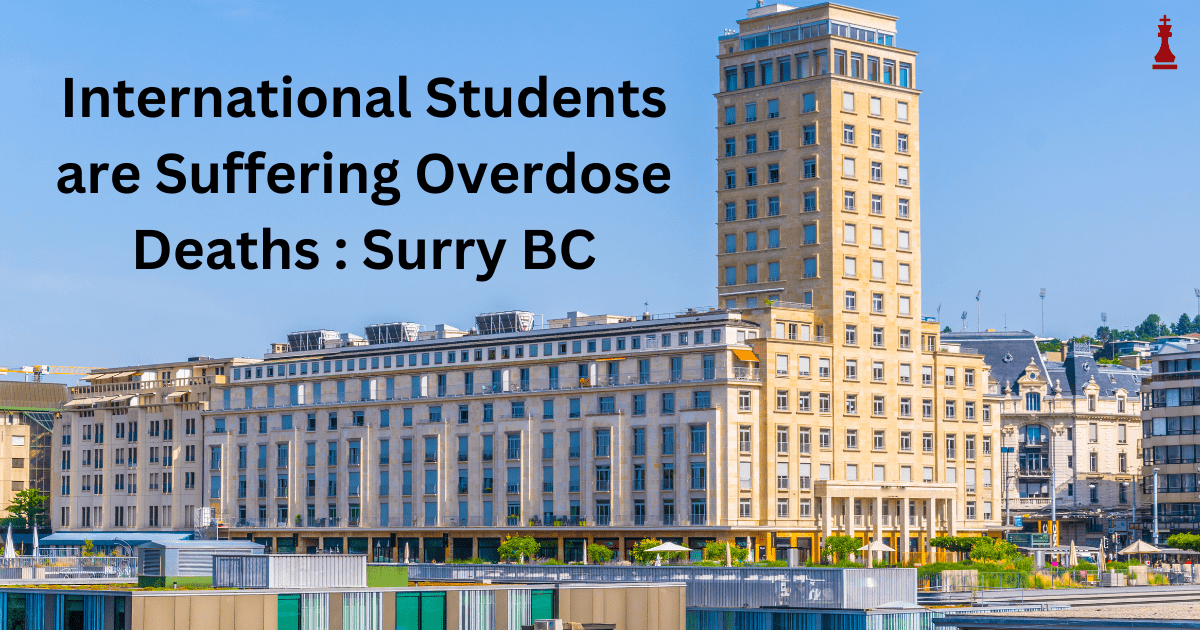An Alarming Number of International Students are Suffering Overdose Deaths. However, the BC government is not monitoring the issue : Surry BC
Published by Admin 19 Jan 2023

According to the government of BC, no information is gathered about how the overdose issue is affecting racial or ethnically specific areas.
Local faith leaders and community workers say Punjabi international students in Surrey are dying at high rates from drug overdose, but data regarding these overdoses are not being released publicly by the government.
Giani Narinder Singh of Gurdwara Dukh Nivaran in Surrey, BC says that the Gurdwara has spent hundreds of thousands of dollars helping return the bodies of students back home to India to their families.
Families frequently provide the Gurdwara power of attorney because they are unable to pay for the funeral or to have the body returned. The coroner's report, which includes the reason for death, is subsequently given to the Gurdwara.
According to 80% of the information that we received, Singh told Press reporters, "80% of the deaths are due to drugs."
Due to stigma, Singh claims that relatives of the deceased frequently claim that they passed away from a heart attack or while sleeping when, in reality, they overdosed on drugs.
There could be various causes for this; you can't just look at it from one perspective, Singh said. "Some have never experienced it and do it for the first time, some could have been doing it in India as well before they do it here."
Many people, according to Singh, are unaware of the dangerous drug supply and the possibility that their medications contain fentanyl and other chemicals.
They may be using drugs for the first time and overdosing on them because they are unsure of how much is in them.
According to Neeraj Walia, Secretary and Operational Head of the Guru Nanak Food Bank, the government is withholding this information since it would discourage other students from coming to Canada.
"The funeral establishments can display the figures. I can say that Surrey reports one or two deaths of overseas students every single week. We have another funeral for a young man who overdosed on Monday, according to Walia, who spoke to Press reporters.
According to Walia, "the government needs to admit this, demonstrate with numbers that this is the cause, and come up with answers."
Without assistance or acknowledgment from the government, according to Walia, the Gurdwara Dukh Nivaran and the food bank are raising money to pay for the burial ceremonies and return of the students' remains at their own expense.
Currently, international students are Canada's top source of income, according to Walia. The BC Coroners Service, however, needs to keep track of data on drug overdoses broken down by race.
According to Ryan Panton, a spokeswoman for the BC Coroners Service, "We do not collect data pertaining to the ethnicity of decedents as there is currently no provincial standard for such information."
However, the First Nations Health Authority publishes a "community situation report" every month detailing the incidence of hazardous drug poisoning incidents and related fatalities among First Nations people in British Columbia. Other BC communities do not receive the same reports.
It's critical to recognize that not everyone is equally impacted by drug toxicity and toxin crises. Age, gender, financial level, and of course, ethnicity, all exhibit significant diversity, according to Lindsey Richardson, an associate professor in the department of sociology at UBC.
"I believe that disaggregated data is useful, and this is generally acknowledged."
Richardson pointed out that there are several obstacles to gathering data based on race, as well as difficulties in assuring its accuracy and preventing stigmatization of groups as a result.
The question then becomes: Do we need that information to create comprehensive and culturally relevant answers to the overdose crisis? Can't those responses be made with less accurate information or without any data? Because we are aware that this is having an impact on communities across the province," Richardson added.
She says that even in the absence of evidence, the government's response should take into account various demographics.